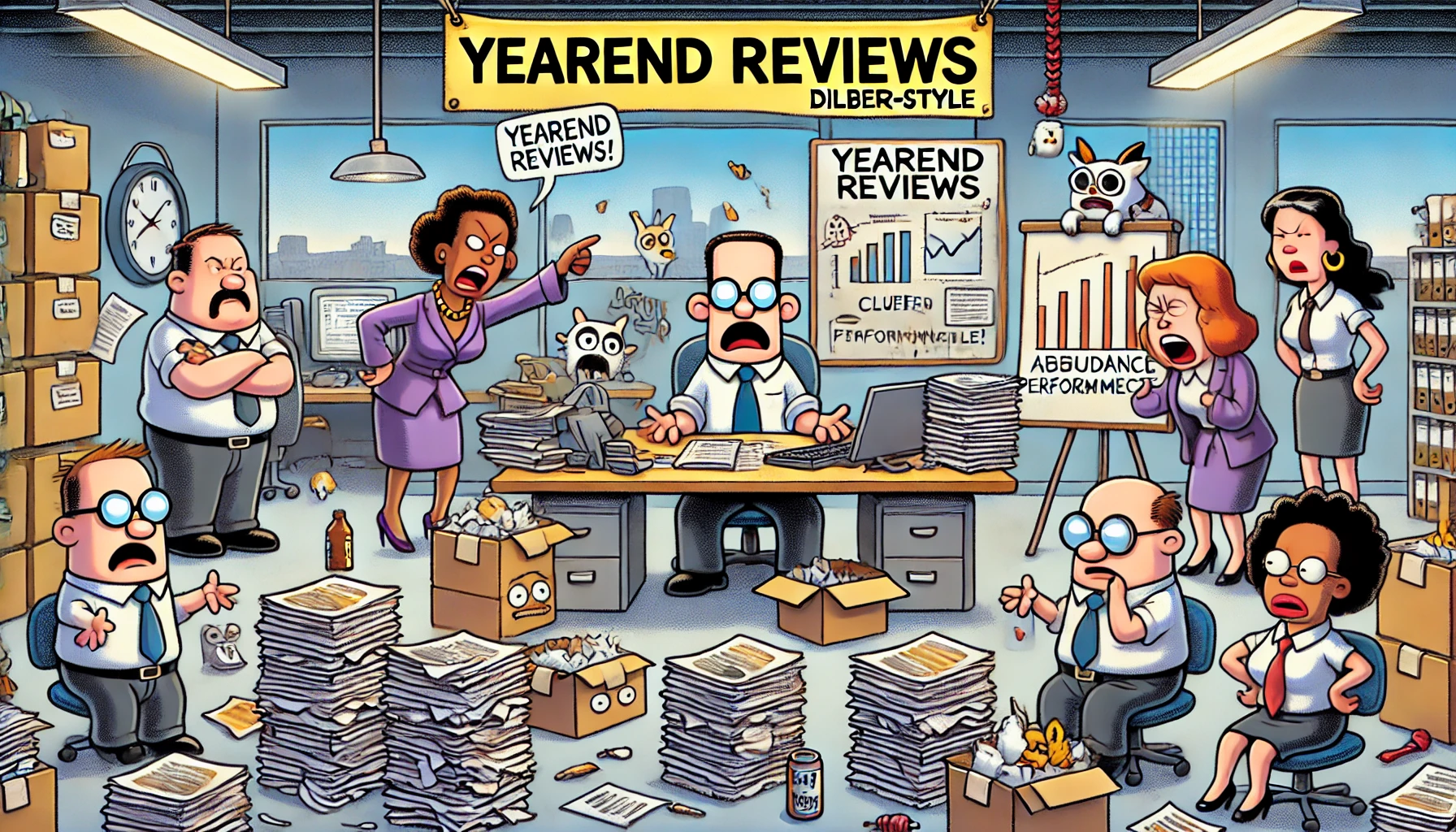Yearend reviews Dilbert-style are a delightful mix of wit, satire, and uncanny workplace truths. Created by Scott Adams, the Dilbert comic strip has long been a mirror reflecting the absurdities of corporate life. Its portrayal of yearend reviews adds a comedic yet thought-provoking layer to a process many dread. This article explores the nuances of yearend reviews as seen through the lens of Dilbert and their real-world implications.
What Are Yearend Reviews in Dilbert?
Yearend reviews, as depicted in Dilbert, poke fun at the corporate review processes riddled with bureaucracy, subjectivity, and occasional absurdity. Characters like the Pointy-Haired Boss and Dilbert himself embody the struggles employees face during these evaluations.
Scott Adams leverages humor to underscore common issues such as vague feedback, inflated performance metrics, and the disconnect between management and employees.
Why Yearend Reviews in Dilbert Resonate
The humor in Dilbert’s take on yearend reviews is rooted in universal truths. Employees across industries can relate to:
- Overly Complex Review Systems: Dilbert often highlights how convoluted and irrelevant some processes are.
- Biased Feedback: Favoritism and subjective evaluations become recurring themes.
- Unrealistic Expectations: The comic underscores how goals often seem disconnected from day-to-day realities.
Key Themes in Dilbert’s Yearend Reviews
Satirical Portrayal of Managers
The Pointy-Haired Boss epitomizes poor management. From illogical criteria to last-minute feedback, the portrayal resonates with anyone who has faced managerial shortcomings.
The Employee Experience
Dilbert and his colleagues often approach yearend reviews with a mix of dread and indifference. Their interactions reveal the frustration employees feel about unproductive processes.
Performance Metrics and Humor
Scott Adams frequently exaggerates metrics to showcase their impracticality. Whether it’s unattainable goals or meaningless numbers, the strip makes a compelling case for rethinking reviews.
Lessons to Learn From Dilbert’s Perspective
While humorous, Dilbert’s take on yearend reviews offers lessons for organizations aiming to improve their processes.
- Simplify the Process: Avoid unnecessary complexity.
- Focus on Real Outcomes: Align reviews with measurable, impactful goals.
- Improve Managerial Training: Equip managers to provide constructive, unbiased feedback.
- Encourage Employee Input: Foster a two-way dialogue during evaluations.
Common Challenges in Yearend Reviews
Dilbert accurately portrays several challenges employees and organizations face:
- Time Constraints: Yearend reviews often feel rushed, leading to shallow assessments.
- Lack of Clarity: Employees are sometimes unsure of what is expected or evaluated.
- Demotivation: A poorly handled review process can harm morale.
- Bias: Personal preferences or workplace politics can skew results.
Practical Tips for Effective Yearend Reviews
Employers can learn from the humor in Dilbert to refine their review practices:
- Set Clear Goals Early: Establish measurable objectives at the beginning of the year.
- Be Transparent: Ensure employees understand the criteria for evaluation.
- Incorporate Feedback: Use employee suggestions to improve the review process.
- Focus on Development: Shift the focus from criticism to growth opportunities.
Why Humor Is Essential in Stressful Processes
One reason yearend reviews Dilbert-style stands out is its use of humor to tackle a stressful topic. Laughter can:
- Reduce tension during challenging discussions.
- Encourage open communication.
- Provide a shared experience that strengthens workplace relationships.
The Role of Scott Adams in Shaping Workplace Satire
Scott Adams’ unique insight into corporate life stems from his own career experiences. Dilbert’s enduring popularity highlights his ability to pinpoint universal workplace frustrations.
Impact on Corporate Culture
Dilbert has influenced how companies approach humor and communication, with some organizations even using the comic strip as a training tool.
Comparing Real-Life Yearend Reviews With Dilbert
Similarities
- Complexity: Both real and fictional reviews often involve excessive paperwork.
- Stress: Employees commonly feel stressed during the review process.
- Managerial Errors: Miscommunication and oversight are frequent issues.
Differences
- Intensity: Real-life reviews have tangible consequences, unlike their humorous depiction.
- Resolution: While Dilbert ends with a punchline, real reviews should aim for actionable outcomes.
The Popularity of Yearend Reviews Dilbert-Style
Dilbert’s yearend review episodes remain fan favorites. Their blend of wit and relatability ensures they resonate across industries.
Creating a Review Process That Avoids Dilbert’s Pitfalls
Organizations should aim to avoid the pitfalls highlighted in yearend reviews Dilbert by:
- Prioritizing fairness and transparency.
- Training managers to provide actionable feedback.
- Making the process collaborative and engaging.



